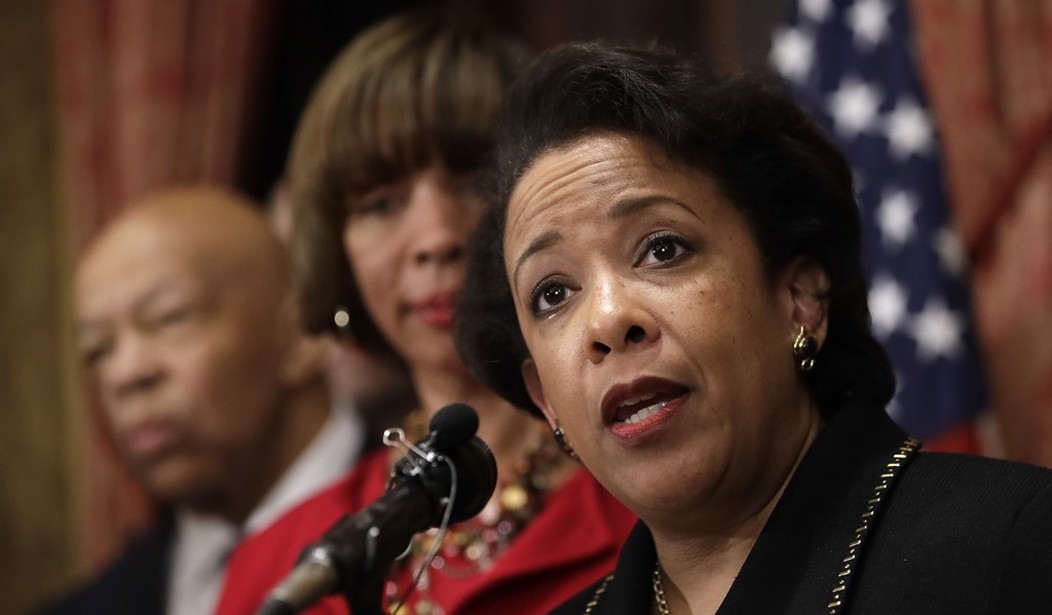Whose reputation took the worst beating in today’s Senate Intelligence Committee hearing with former FBI director James Comey? At first blush, Guy Benson’s take on it seems pretty spot-on:
BOTTOM LINE: Your previous opinions were all confirmed in that hearing.
— Guy Benson (@guypbenson) June 8, 2017
That’s certainly true of opinions about Donald Trump, to whom we’ll get in a moment, and of James Comey. Nothing substantial was added to yesterday’s release of Comey’s prepared testimony, and thus expectations of a gamechanger for the credibility of either Comey or Trump went unfulfilled. The status quo remains in place for both, although now that Comey has vented about Trump’s “lies” over his departure, he may choose to withdraw from further comment. Unless, of course, Trump goads him into it again.
The biggest loser of the day was someone who wasn’t on most of the scorecards at its beginning. Republicans took the opportunity to drill down into Comey’s decisions to go public with the outcome of the Hillary Clinton investigation, and discovered some arguable tampering by former Attorney General Loretta Lynch:
Former FBI Director James Comey said former Attorney General Loretta Lynch directed him to refer to the Hillary Clinton email probe as a “matter,” not an investigation.
He said the request “confused and concerned” him and led him to the decision to make his independent announcement last July about the case. …
In a follow-up later in the hearing, Comey made clear that it was a “criminal investigation” that was taking place. Comey pointed out that the Clinton campaign used “euphemisms [like] security review” to describe the FBI’s work.
He said the campaign’s descriptions of the FBI investigation were “inaccurate” and “gave [him] a queasy feeling.”
In other words, the implication is clearly that Lynch tried to force the FBI into using the Hillary Clinton campaign nomenclature. That would be a clear politicization of the FBI and the Department of Justice, and should prompt the Senate Judiciary Committee to look into why Lynch gave Comey that direction. While that may not entirely let Comey off the hook for his “usurpation” of the AG’s role, as Rod Rosenstein accurately described it, it certainly explains the context for it a little more fully. And if Trump’s “I hope” can be seen as a vehicle for an inappropriate directive, Lynch’s directive and its echo of Hillary’s PR campaign should be up for some review, too.
As for the president, he’s in the same shape as when the day started, but that’s not to say that this week won’t leave a mark. Comey’s testimony reveals a president who seems stuck within a very different organizational model than the one needed for governance, as I write at The Fiscal Times today:
Four months ago, I wrote that Trump’s presidency was a grand experiment by voters into a longstanding hypothesis. Could a wealthy businessman managing his own company do better operating the federal government than a politician? The experiment has just begun, but it’s already apparent that the type of businessman matters in this hypothesis. A CEO of a traditional, publicly-held corporation would have a different background than that of a real-estate tycoon running a private, family-operated business. In the latter model, the only ‘constituency’ that matters is the person at the top, and everyone else’s interests get subordinated to those of the owners. Personal loyalty counts for everything, and organizational lines get shifted to meet the changing agenda of ownership.
This accounts for much of the awkwardness expressed by Comey in his meetings with Trump. Flynn had been a loyal supporter of Trump, which is one reason why Trump sees him as “a good guy,” and wants to see whether Comey might want to take it easy on him. But even before that February meeting, Comey relates an encounter a week after Trump’s inauguration where it appears the new president wants Comey to ask to keep his job – even though Trump had already assured him of keeping it in two earlier conversations.
In Comey’s recollection, Trump attempted to “create some sort of patronage relationship,” and then followed that up with repeated declarations of Trump’s need for vertical and personal loyalty. “I need loyalty, I expect loyalty,” Trump told Comey during the January 27th dinner. Comey’s first loyalty is to the Constitution and the law, however, and more broadly to the US government, not to a president, which is one reason why FBI director terms run for ten years rather than on a normal presidential cycle, as with Cabinet appointments. All three branches of the federal government rely on the FBI to remain as independent as possible of the White House, even while the bureau still reports up the White House chain of command.
Trump has yet to learn to govern in a shared-power model. A more traditional CEO who answers to a board of directors would have had a head start on that learning curve, but the Trump emerging from Comey’s testimony doesn’t appear to have even started on it. Governance in any representative republic only succeeds when it operates on recognition of shared interests and separate spheres of authority. The top-down model of personal mandates and upward loyalty works for private family-operated firms, but in governance, it creates all sorts of boundary problems and misjudgments. So far those have not been serious enough to cross the lines into genuine legal danger for Trump, but the risk for that is real unless the new president starts to recognize his limitations and adapt to the new context of his leadership.
The obstruction angle is dead, but until Trump understands the differences, he’s going to continue to put himself and his presidency at risk.








Join the conversation as a VIP Member